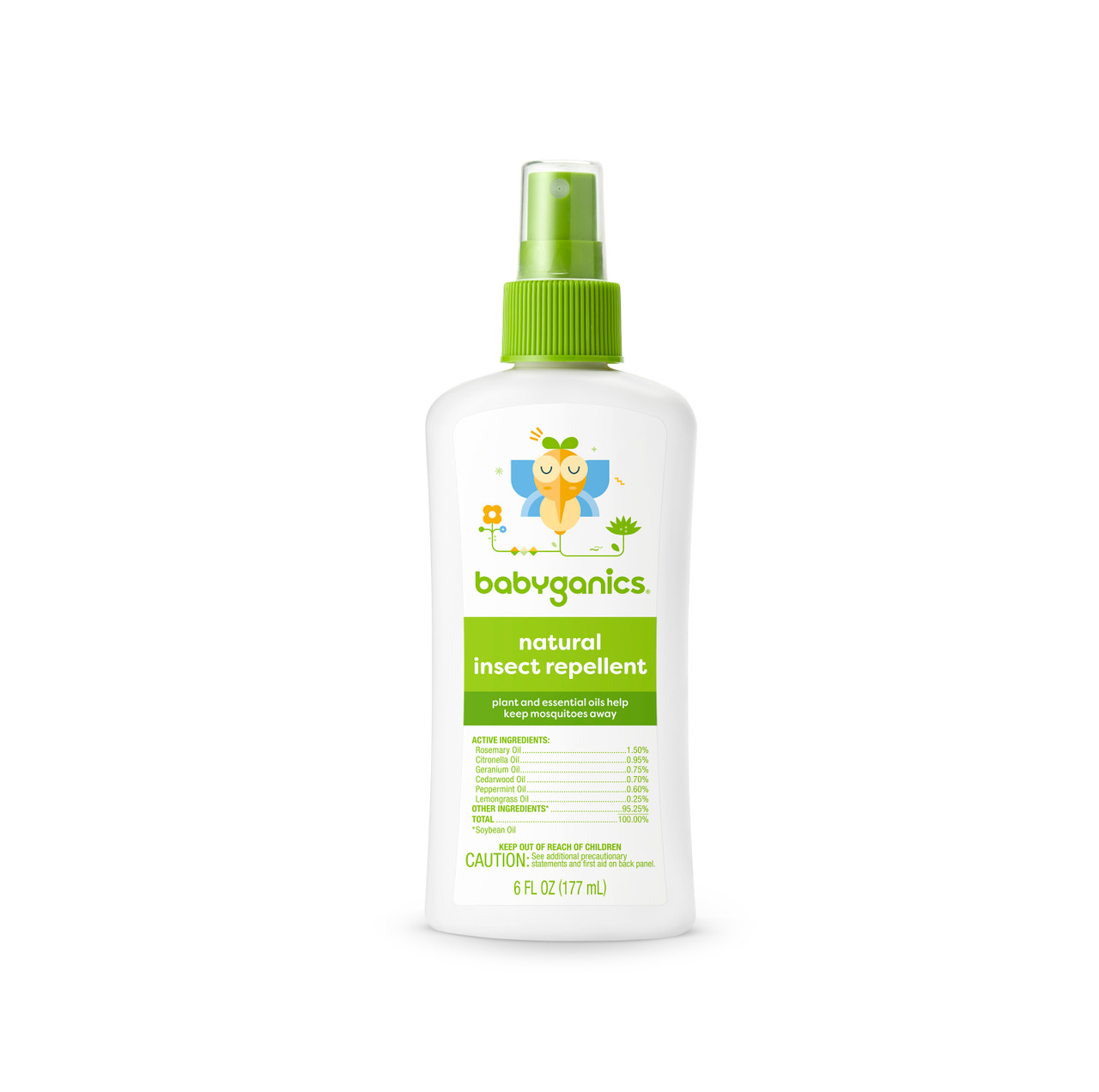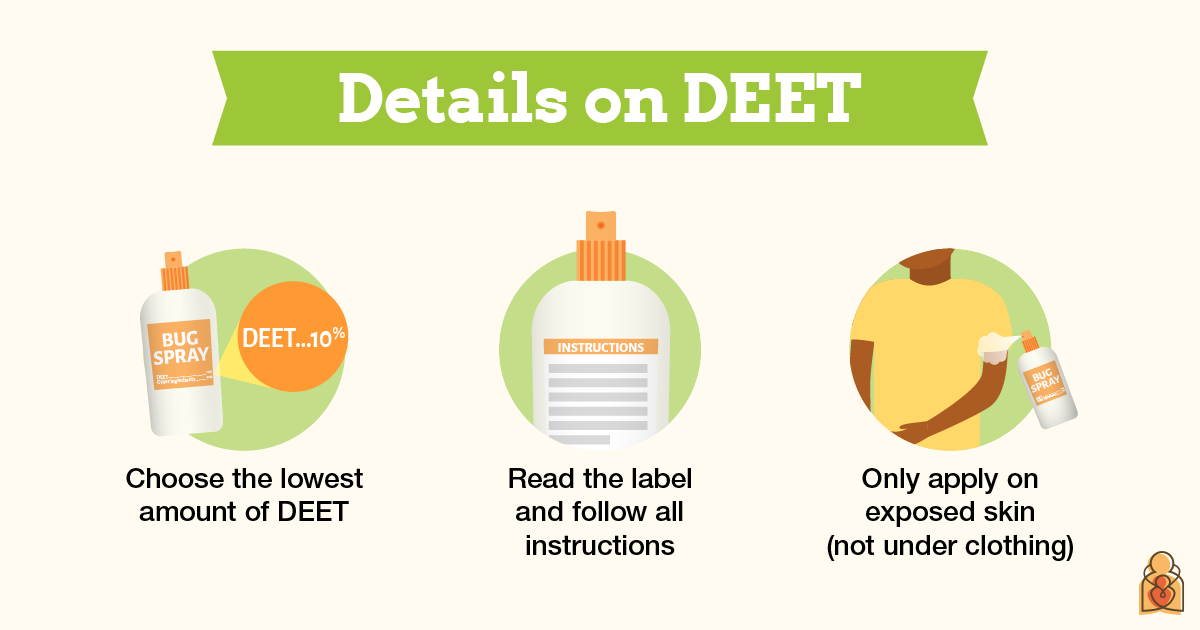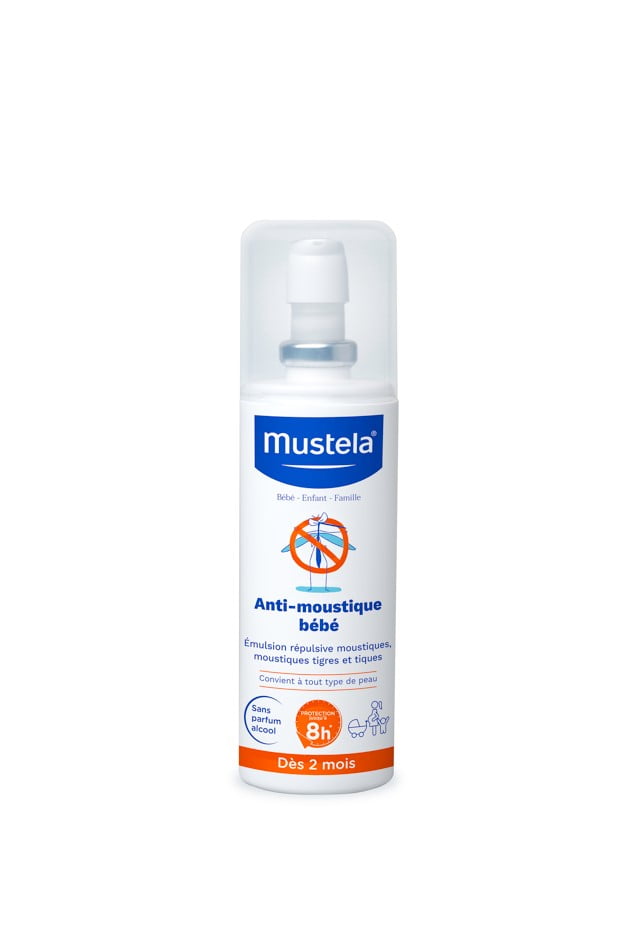Yes, mosquito repellent can be used on infants, but it’s essential to choose a safe and suitable product. When using mosquito repellent on infants, opt for natural or DEET-free options specifically formulated for babies to minimize any potential risks.
Protecting infants from mosquito bites is crucial to prevent diseases like malaria or Zika virus. However, it’s vital to follow safety guidelines and consult a pediatrician before applying any repellent on your baby. Ensuring proper clothing coverage and using mosquito-proof netting are additional measures to safeguard your infant from mosquito bites.
Remember, always prioritize your baby’s safety when using insect repellents.
The Importance Of Protecting Infants From Mosquitoes
Mosquitoes are not just annoying pests; they can pose serious health risks to infants. Protecting infants from mosquito bites is crucial to prevent mosquito-borne diseases and ensure their well-being.
Mosquito-borne Diseases And Infants
Infants are particularly vulnerable to mosquito-borne diseases such as malaria, dengue fever, and Zika virus due to their developing immune systems. These diseases can have severe consequences for infants, making protection against mosquitoes essential.
Understanding Infant Skin Sensitivity
Infant skin is delicate and more sensitive than adult skin, making it crucial to use gentle and safe mosquito repellent products specifically formulated for infants. Harsh chemicals can cause irritation and allergic reactions on their skin.
Mosquito Repellent Ingredients To Avoid For Infants
When protecting infants from mosquitoes, it’s important to avoid using certain mosquito repellent ingredients. Substances like DEET and OLE shouldn’t be used on babies, as they can pose health risks. Instead, opt for natural and safe mosquito repellents specifically formulated for infants to ensure their safety.
The Risks Of Deet
When it comes to protecting infants from mosquito bites, many parents wonder if mosquito repellent can be used on their little ones. While it is important to keep your baby safe from bug bites, it is equally important to be cautious about the ingredients in the repellent you choose.
One common ingredient found in mosquito repellents is DEET (N,N-diethyl-meta-toluamide). While DEET is effective in repelling mosquitoes, it is important to note that it can pose risks, especially for infants. Studies have shown that DEET can cause skin irritation, allergic reactions, and even neurological problems in young children.
According to the American Academy of Pediatrics (AAP), DEET-based repellents should not be used on infants younger than 2 months old. For infants older than 2 months, it is recommended to choose a repellent with a lower concentration of DEET, usually around 10% or less.
Other Harmful Chemicals
Aside from DEET, there are other chemicals commonly found in mosquito repellents that should be avoided when using them on infants. These chemicals include:
- Permethrin: This chemical is often used in mosquito repellent clothing and should not be directly applied to an infant’s skin.
- Picaridin: While generally considered safe for older children and adults, there is limited information on the safety of picaridin for infants.
- Oil of lemon eucalyptus (OLE): This natural repellent is not recommended for use on infants under 3 years old due to potential skin irritation and allergic reactions.
- IR3535: While considered safe for use on infants, it is still important to follow the recommended guidelines for application and concentration.
When choosing a mosquito repellent for your infant, it is always best to consult with your pediatrician to ensure you are selecting a product that is safe and suitable for your baby’s age and skin sensitivity. Additionally, it is important to follow the instructions on the product label and apply the repellent sparingly and only to exposed areas of skin.
Safe Mosquito Repellent Options For Infants
Mosquitoes can be a nuisance, especially for infants who are more susceptible to mosquito bites. Protecting your baby from mosquito bites is essential to ensure their comfort and safety. However, it is crucial to choose mosquito repellents that are safe for infants. In this section, we will explore some safe mosquito repellent options for infants, including natural choices and recommended products with Picaridin.
Natural Repellent Choices
Natural mosquito repellents are a great option for infants as they are typically free from harsh chemicals. These repellents use natural ingredients to repel mosquitoes effectively. Here are some natural repellent choices that you can consider:
- Citronella: Citronella oil is a popular natural mosquito repellent. It can be found in various forms such as candles, sprays, and lotions. Make sure to choose a citronella product specifically formulated for infants.
- Lemon Eucalyptus: Lemon eucalyptus oil is another natural repellent option. It has been shown to provide effective protection against mosquitoes. Look for products containing lemon eucalyptus oil with a suitable concentration for infants.
- Lavender: Lavender oil not only has a pleasant scent but also acts as a natural mosquito repellent. You can use lavender-scented lotions or sprays to keep mosquitoes at bay.
Recommended Products With Picaridin
Picaridin is a synthetic mosquito repellent ingredient that is considered safe for infants. It is effective in repelling mosquitoes without causing irritation to their sensitive skin. Here are some recommended products with Picaridin:
| Product | Concentration | Age Recommendation |
|---|---|---|
| XYZ Mosquito Repellent Spray | 10% | 6 months and above |
| ABC Mosquito Repellent Lotion | 15% | 3 months and above |
| DEF Mosquito Repellent Wipes | 20% | 12 months and above |
When using any mosquito repellent on infants, it is important to follow the instructions provided by the manufacturer. Avoid applying the repellent on their hands, near their eyes, or on any irritated or broken skin. Additionally, it is advisable to perform a patch test on a small area of your baby’s skin to check for any adverse reactions.
Remember, while mosquito repellents can help protect your baby from mosquito bites, it is also important to take other preventive measures such as dressing them in long, light-colored clothing and using mosquito-proof mesh on doors and windows.
By choosing safe mosquito repellent options and implementing additional preventive measures, you can ensure your infant stays protected from mosquito bites and enjoy a comfortable outdoor experience.

Credit: www.whattoexpect.com
Age Guidelines For Applying Repellent On Infants
Mosquito repellents are a crucial tool for protecting infants from insect bites, but it’s essential to adhere to age guidelines to ensure their safety. Here’s a comprehensive guide on the starting age for various repellent types and special precautions for newborns.
Starting Age For Various Repellent Types
When it comes to protecting infants from mosquito bites, it’s important to consider the appropriate age for using different types of repellents. Here are the starting ages for common mosquito repellent options:
- DEET-based repellents: Suitable for infants aged 2 months and older.
- Picaridin-based repellents: Safe to use on infants aged 2 months and above.
- Natural repellents: Can be used on infants aged 2 months and older.
Special Precautions For Newborns
When applying mosquito repellent on newborns, it’s crucial to take extra precautions to ensure their safety and well-being. Here are some special considerations:
- Consult a pediatrician: Before using any type of mosquito repellent on a newborn, it’s vital to seek advice from a pediatrician.
- Avoid direct application: Refrain from directly applying repellent on a newborn’s skin. Instead, consider using mosquito netting and protective clothing.
- Choose milder formulations: Opt for natural and milder repellents specifically designed for infants, ensuring they are free from harsh chemicals.
Non-chemical Ways To Protect Infants From Mosquitoes
When it comes to keeping infants safe from mosquito bites, there are non-chemical methods that can be highly effective.
Clothing Strategies
- Dress infants in long, light-colored, loose-fitting clothing covering arms and legs.
Physical Barriers
- Install mosquito-proof mesh on doors and windows to prevent entry.
- Use mosquito-proof netting over prams and strollers when outdoors.
Environmental Modifications
- Eliminate standing water where mosquitoes breed.
- Keep outdoor areas well-maintained to reduce mosquito habitats.

Credit: babyganics.com
Understanding Mosquito Repellent Watches And Their Safety
Mosquito repellent watches have gained popularity as a convenient way to protect against mosquito bites, but when it comes to infants, safety is a top priority. Understanding how repellent watches work and evaluating their safety for infants is essential for parents.
How Repellent Watches Work
Mosquito repellent watches utilize natural oils such as citronella, lemongrass, or geraniol to create a barrier that deters mosquitoes. These oils are slowly released from the watch, creating a protective radius around the wearer.
Evaluating Safety For Infants
When considering the use of mosquito repellent watches on infants, it’s crucial to prioritize safety. The skin of infants is delicate and more sensitive, making it essential to assess the ingredients and the potential impact on their health.
Applying Mosquito Repellent On Infants: Best Practices
Safely applying mosquito repellent on infants involves choosing DEET-free options suitable for delicate skin. Protect babies by dressing them in light, long clothing and using mosquito nets on strollers and cribs. Always consult a pediatrician before using any repellent on infants.
Dos And Don’ts
When it comes to protecting your baby from mosquito bites, it’s important to follow certain dos and don’ts. Here are some best practices to keep in mind:- Do use mosquito repellents that are specifically formulated for infants.
- Do apply the repellent to your own hands first and then rub it onto your baby’s skin, avoiding the face and hands.
- Do use mosquito nets over your baby’s stroller or crib when they are outside.
- Don’t apply mosquito repellent to your baby’s face, hands, or near their eyes or mouth.
- Don’t use products that contain DEET on infants under two months old.
- Don’t use products that combine sunscreen and mosquito repellent, as sunscreen needs to be reapplied more frequently than mosquito repellent.
Frequency And Quantity Of Application
When it comes to applying mosquito repellent on infants, it’s important to use the right amount and apply it frequently enough to ensure protection. Here are some guidelines to follow:- Apply the repellent sparingly to exposed skin, using only enough to cover the area.
- Reapply the repellent every two hours or as directed on the product label.
- Use only as much repellent as needed and avoid over-application.
- Wash the repellent off your baby’s skin with soap and water when they come indoors.
Expert Recommendations And Guidelines
When it comes to protecting infants from mosquitoes, it’s important to follow expert recommendations and guidelines. Avoid using mosquito repellent on infants and instead dress them in long, light-colored, loose-fitting clothing and use mosquito-proof mesh on doors and windows to prevent mosquito bites.
Insights From Health Organizations
When it comes to using mosquito repellent on infants, it is essential to follow expert recommendations and guidelines. Health organizations like the American Academy of Pediatrics (AAP) and the Centers for Disease Control and Prevention (CDC) recommend using mosquito repellent on infants older than two months. However, they suggest parents avoid using products that contain oil of lemon eucalyptus (OLE) or para-menthane-diol (PMD) on children younger than three years old.Pediatrician Advice On Repellents
Pediatricians also recommend parents use mosquito repellents on infants to protect them from mosquito-borne diseases. They advise parents to choose a repellent that contains DEET (N,N-diethyl-meta-toluamide), picaridin, or IR3535. It is essential to follow the product label instructions when applying repellents to infants. For example, parents should avoid applying repellent to a child’s hands to prevent them from rubbing it in their eyes or mouth.In conclusion, parents can use mosquito repellent on infants to protect them from mosquito bites and the diseases they can transmit. However, it is crucial to follow expert recommendations and guidelines and choose a repellent that is safe for infants. Parents should also avoid applying repellent to an infant’s hands and face and should use it sparingly. By taking these precautions, parents can keep their infants safe from mosquito bites and the diseases they can transmit.
Credit: www.healthychildren.org
Frequently Asked Questions
Can I Put Mosquito Repellent On My Baby?
It is not recommended to put mosquito repellent on babies. Instead, dress them in long, light-colored, loose-fitting clothing and use mosquito-proof mesh on doors and windows. When outside, use mosquito-proof netting over prams and strollers to protect them from mosquito bites.
What Is The Safest Mosquito Repellent For Babies?
The safest mosquito repellent for babies is one that is specifically formulated for infants. It is important to choose a repellent that does not contain harmful chemicals such as DEET. Natural or organic repellents are a good option for babies as they are gentle and effective.
Always read the product label and follow the instructions for safe use.
How To Protect Infants From Mosquitoes?
Protect infants from mosquitoes by dressing them in long, light-colored clothing and using mosquito-proof netting on strollers.
Conclusion
It’s important to prioritize safe and natural methods to protect infants from mosquito bites. Opt for long, light-colored clothing and mosquito-proof netting for strollers. Avoid using mosquito repellents on infants unless specifically labeled for their age group. Always consult with a pediatrician for guidance.
Related posts:

I’m MD Tanvir, and I bring years of expertise gained from working closely with pest control companies to the forefront. My journey in the industry has inspired me to launch Bug Battler, a platform aimed at equipping people with the know-how to combat pests autonomously. Through Bug Battler, I aim to empower individuals with practical insights to tackle pest infestations effectively.

